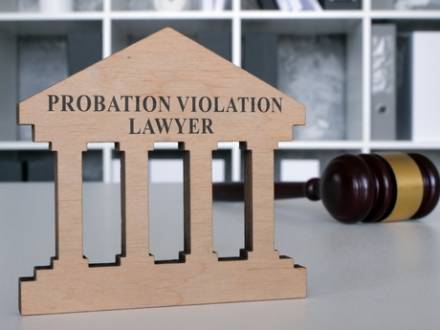Recent Blog Posts
Can You Ever Get Your Gun Rights Back in Illinois?
 Illinois has some of the strictest weapons laws in the nation, and a criminal conviction in Illinois can follow you long after the case is closed - especially when it costs you your gun rights. This can affect personal safety and fundamental constitutional rights.
Illinois has some of the strictest weapons laws in the nation, and a criminal conviction in Illinois can follow you long after the case is closed - especially when it costs you your gun rights. This can affect personal safety and fundamental constitutional rights.
In some cases, once firearm privileges are taken away, they are gone for good, even after completing probation, paying fines, and serving time. In other cases, some convictions allow an individual to have his or her firearm and Firearm Owner’s Identification (FOID) (430 ILCS 65/) rights restored.
While the process can be time-sensitive and full of legal complexities, understanding when restoration is possible and when it is permanently barred is crucial. A Rolling Meadows, IL criminal defense lawyer can help you determine whether you are eligible to have your gun rights reinstated, and, if so, the best way to proceed.
Carjacking in Illinois: Penalties and Defenses
 Carjacking in Illinois, especially in the Chicago area, has surged in the past two decades, although there are signs of decline from the peak in 2021. In 2022, Chicago reported 1,655 carjackings, which was more than double the number from 2018, but down about 11 percent from 2021.
Carjacking in Illinois, especially in the Chicago area, has surged in the past two decades, although there are signs of decline from the peak in 2021. In 2022, Chicago reported 1,655 carjackings, which was more than double the number from 2018, but down about 11 percent from 2021.
Reports from mid-2025 indicate a significant drop, with only 64 carjackings reported between January and June of 2025. Dedicated task forces in Illinois have recovered numerous stolen cars and made a significant number of arrests, and Illinois passed a bill that required car manufacturers to establish a 24-hour hotline for police to track stolen vehicles.
While many people are shocked to find that carjacking is treated as being among the most serious violent felonies in the system, often carrying lengthy prison terms, firearm enhancements, and mandatory minimums. If you are facing carjacking charges or were the "lookout" or someone allegedly involved after the fact, you need a strong, experienced Chicago, IL criminal defense lawyer.
Power, Gas, and Water Theft: Illinois Law Explained
 When most of us think of theft, we think of physical property or money being taken. However, in the state of Illinois, theft of utilities like electricity, gas, and water can result in misdemeanor or even felony charges under 720 ILCS 5/16-14. Anyone who diverts or tampers with a utility meter, or uses electricity, gas, or water without authorization, commits theft of services.
When most of us think of theft, we think of physical property or money being taken. However, in the state of Illinois, theft of utilities like electricity, gas, and water can result in misdemeanor or even felony charges under 720 ILCS 5/16-14. Anyone who diverts or tampers with a utility meter, or uses electricity, gas, or water without authorization, commits theft of services.
An increasing number of utility companies are utilizing smart-meter data and digital evidence to identify any irregularities in usage. In some cases, the issue is nothing more than a faulty meter or a billing dispute. In other cases, the problem is intentional bypass, resulting in theft of services.
If you are facing charges of utility theft, it is essential that you understand how the state defines and punishes this criminal offense. Your first step should always be to consult with a Chicago, IL criminal defense lawyer who can examine the evidence and build a solid defense on your behalf.
Who’s Liable for Child Pornography on a Shared Device?
 In today’s world, both homes and workplaces often rely on shared computers, tablets, and company servers. So, what happens when law enforcement finds child pornography files on a device used by multiple people? In the state of Illinois, possession of child pornography (720 ILCS 5/11-20.1) is a felony with devastating penalties, including time in prison, and mandatory sex offender registration, not to mention the social stigma of being convicted of a sex crime.
In today’s world, both homes and workplaces often rely on shared computers, tablets, and company servers. So, what happens when law enforcement finds child pornography files on a device used by multiple people? In the state of Illinois, possession of child pornography (720 ILCS 5/11-20.1) is a felony with devastating penalties, including time in prison, and mandatory sex offender registration, not to mention the social stigma of being convicted of a sex crime.
It can also be very challenging to secure employment or rent a home. When the evidence in a child pornography case is tied to a shared computer, proving who was actually responsible becomes far more complicated. If you or a loved one is facing life-changing allegations of child pornography, it is essential to understand the defenses that may apply in your case.
How Deepfake Evidence is Changing Illinois Criminal Cases
 The continuing rise of artificial intelligence has brought some troubling new challenges to criminal courts. Deepfake evidence consists of realistic but AI-generated audio, video, or images, and these images can depict someone saying or doing something they did not do. While AI technology has legitimate, even helpful uses, it continues to surface in criminal cases either as a tool to shift blame or fabricate alibis or as alleged evidence against a defendant.
The continuing rise of artificial intelligence has brought some troubling new challenges to criminal courts. Deepfake evidence consists of realistic but AI-generated audio, video, or images, and these images can depict someone saying or doing something they did not do. While AI technology has legitimate, even helpful uses, it continues to surface in criminal cases either as a tool to shift blame or fabricate alibis or as alleged evidence against a defendant.
Can deepfake material be absolutely authenticated? Can juries differentiate between a genuine recording and a sophisticated AI fake? How can miscarriages of justice be prevented, and what safeguards are necessary? Deepfake evidence is rapidly evolving, presenting significant legal challenges. Consulting with a knowledgeable Oakbrook Terrace, IL criminal defense lawyer can help you understand the strategies defense attorneys use to protect their clients.
Can You Be Charged with a Crime in Illinois and Not Arrested?
 Most of us assume that if we are charged with a criminal offense, we will also be arrested. That may or may not be the case in Illinois. Depending on the crime and the circumstances, you could potentially face criminal charges without ever being handcuffed or taken into custody. It is important that you understand how charging decisions are made and when an arrest is required.
Most of us assume that if we are charged with a criminal offense, we will also be arrested. That may or may not be the case in Illinois. Depending on the crime and the circumstances, you could potentially face criminal charges without ever being handcuffed or taken into custody. It is important that you understand how charging decisions are made and when an arrest is required.
It is also important to understand how summonses and notices to appear are issued, and what your response should be. This can help you avoid a serious legal misstep that could be difficult to recover from. An experienced Rolling Meadows, IL criminal defense lawyer is your best resource to answer your questions and ensure your rights are protected.
Charged But Not Arrested
A charge is a formal accusation of a criminal offense, while an arrest involves taking a person into custody, booking them, and potentially holding them in jail. Although charges and arrests usually go hand-in-hand, there are four specific circumstances under which you could be charged but not arrested. These include:
What You Need to Know About Illinois Grand Jury Investigations
 Perhaps you have heard rumors that you may be the target of a grand jury investigation. How do you find out whether the rumor is true, and if it is, what should you do? Most people associate federal law enforcement with grand juries, but only two states (Connecticut and Pennsylvania) and Washington, D.C., do not utilize state grand juries. State grand juries are typically reserved for serious criminal cases involving violent crimes, organized crimes, drug offenses, and public corruption.
Perhaps you have heard rumors that you may be the target of a grand jury investigation. How do you find out whether the rumor is true, and if it is, what should you do? Most people associate federal law enforcement with grand juries, but only two states (Connecticut and Pennsylvania) and Washington, D.C., do not utilize state grand juries. State grand juries are typically reserved for serious criminal cases involving violent crimes, organized crimes, drug offenses, and public corruption.
A state grand jury usually hears evidence and then determines if criminal charges should be filed and whether a person should be indicted for a criminal offense. The grand jury is comprised of those from the community. While grand juries can have up to 23 members, in Illinois, they consist of 16 members. At least 12 members must be present before the grand jury can hear evidence. Grand jury investigations are typically considered "secret" proceedings, but in smaller cities, residents are more likely to be aware that a grand jury has been convened, and even the reason for the grand jury.
Avoiding the Most Common Illinois Probation Violations
 Between 2010 and 2023, the number of people in Illinois prisons fell nearly 40 percent, reaching the lowest level since 1991. The general consensus is that the decline in the prison population is due to broad changes in sentencing practices, especially the increased use of community supervision (probation). A shift in thinking regarding sentencing goals, the increased availability of community-based options like probation, and concerns over the cost of incarceration have led to these significant changes.
Between 2010 and 2023, the number of people in Illinois prisons fell nearly 40 percent, reaching the lowest level since 1991. The general consensus is that the decline in the prison population is due to broad changes in sentencing practices, especially the increased use of community supervision (probation). A shift in thinking regarding sentencing goals, the increased availability of community-based options like probation, and concerns over the cost of incarceration have led to these significant changes.
A number of specialized alternative treatment programs that keep those convicted of a crime out of prison have been seen across the state. Jail-based programs, police-led deflection efforts that divert people into treatment, specialized treatment courts, and enhanced probation services are all making substantial contributions to divert people from prison whenever possible. The state has also dedicated funding to programs like Adult Redeploy Illinois.
Two People Arrested in Naperville for Attempted Armed Robbery
 Pre-trial release has been denied for two individuals who allegedly attempted to rob a Lisle convenience store at knifepoint and attempted to rob a woman at a Naperville bank just days ago. Both suspects have been charged with one count of armed robbery and one count of attempted armed robbery. (A Class X felony and a Class 1 felony).
Pre-trial release has been denied for two individuals who allegedly attempted to rob a Lisle convenience store at knifepoint and attempted to rob a woman at a Naperville bank just days ago. Both suspects have been charged with one count of armed robbery and one count of attempted armed robbery. (A Class X felony and a Class 1 felony).
Armed robbery is a serious charge in Illinois that can benefit from strong legal representation. Your attorney may be able to have the charges lowered to a less serious offense through a plea deal, negotiate a lesser sentence, prove you are not guilty of the charges in court, or have the charges dropped because of police error or violations of your Constitutional rights. Now is the time to speak to a knowledgeable Oakbrook Terrace, IL criminal defense lawyer.
Are Field Sobriety Tests Sufficient Probable Cause for Arrest?
 A police officer must have reasonable suspicion that a driver is impaired before pulling him or her over by personally witnessing the driver driving erratically in some way. If there is reasonable suspicion to pull over a driver, then there must be probable cause for an arrest. This means that before making a DUI arrest, the police officer must have probable cause to believe the driver is driving under the influence or sufficient evidence that the driver has "probably" committed the crime of DUI.
A police officer must have reasonable suspicion that a driver is impaired before pulling him or her over by personally witnessing the driver driving erratically in some way. If there is reasonable suspicion to pull over a driver, then there must be probable cause for an arrest. This means that before making a DUI arrest, the police officer must have probable cause to believe the driver is driving under the influence or sufficient evidence that the driver has "probably" committed the crime of DUI.
Officers usually get this probable cause by asking the driver questions to see if his or her words are slurred, eyes red and watery, or if there is a strong smell of alcohol coming from the driver. If questioning the driver leads the officer to believe he or she is intoxicated, the officer may ask the driver to perform field sobriety tests to be sure before an arrest is made. While field sobriety tests are used in every state – but are not mandatory in any state – they are often less than accurate yet can be used as evidence in court to prove an individual was driving under the influence.













 312-345-1700
312-345-1700



